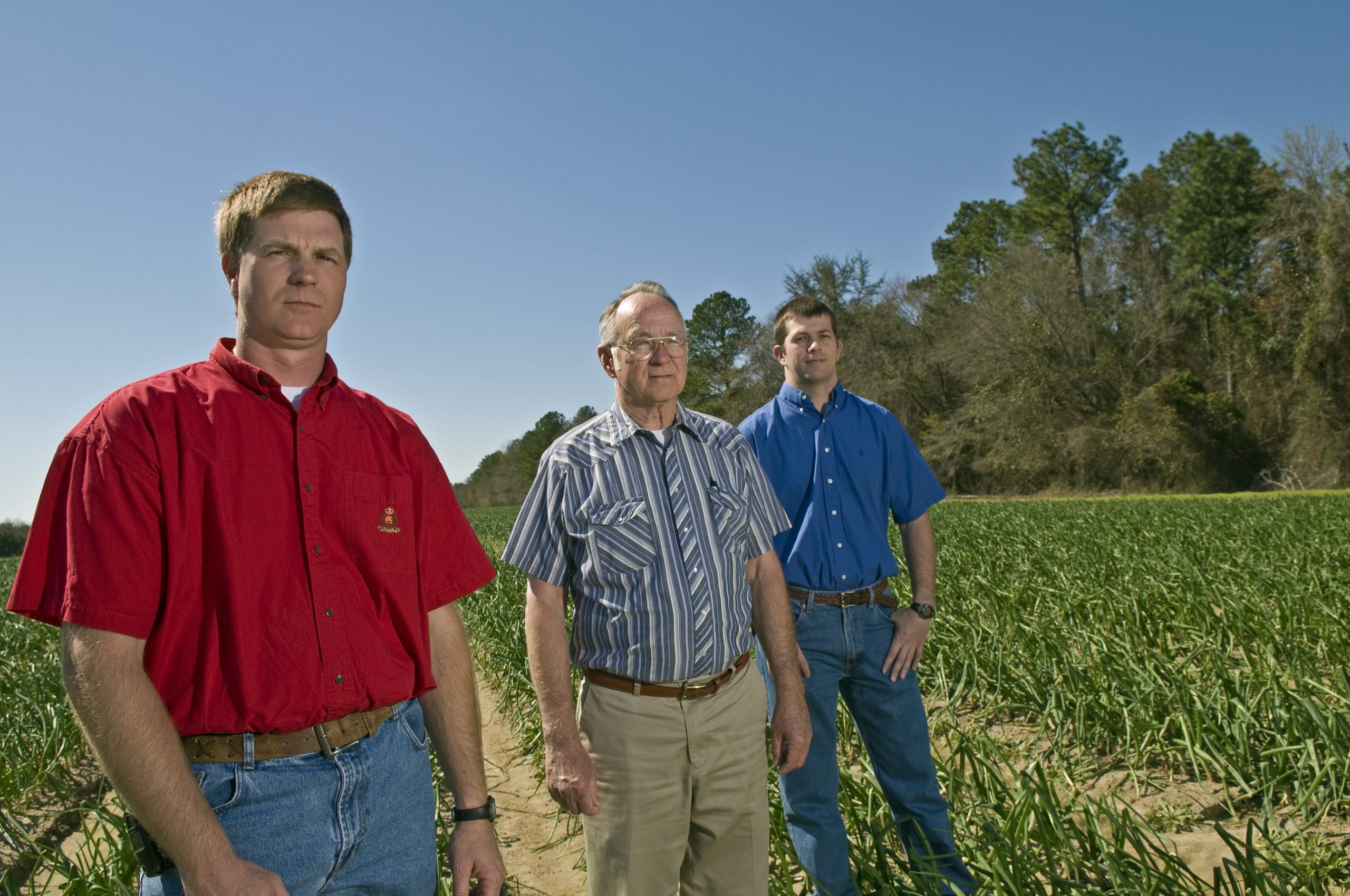
Aug 8, 2022
Sweet organic success
Growing organics is a more intensive undertaking requiring ingenuity and even more dedication and perseverance than the Vidalia onions McLain Farms Inc. grows.
Brothers Brett and Rusty McLain and their spouses run the Lyons, Georgia, family farming operation which grows 400 acres of conventional and organic Vidalias.
(Above photo: From left: Brett, James and Rusty McLain of McLain Farms in a field of Vidalia onions. The brothers and their father James, who died in 2018, began growing Vidalia onions in 1986. They entered organics in 2006. Photo: Shuman Farms)
In 2006, the McLains entered organics, which now constitutes 13% of production. The McLains began with 6 acres. Today, it grows on 55 acres.
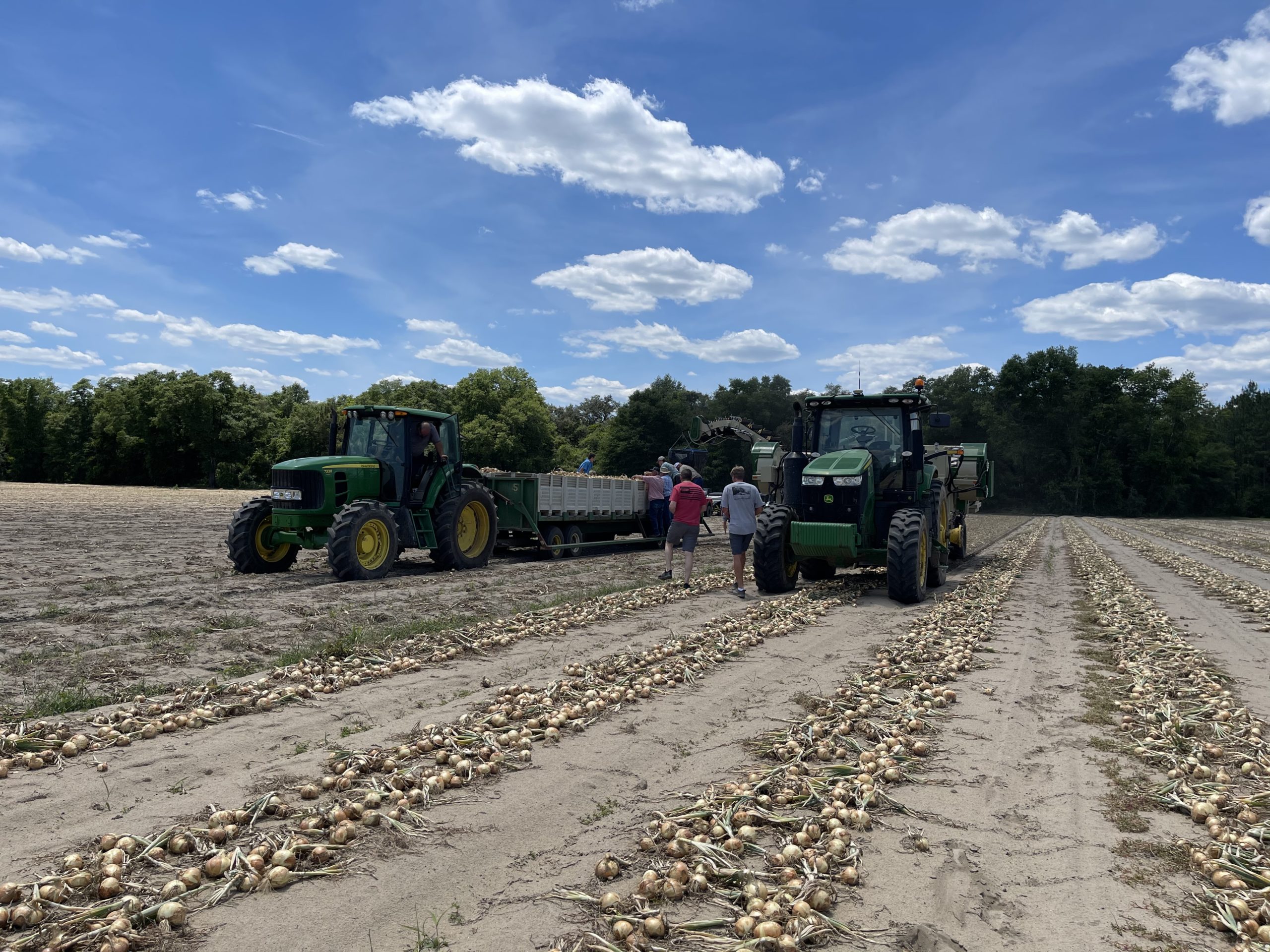
“We really have good demand for our organic product,” said Rusty. “The organic demand is constantly increasing. We’ve never seen a decrease in it.”
The addition of organics followed requests from their retail customers, said Rusty. “Retailers are more and more increasing their organic lines,” he said.
Organic challenges
Disease pressure and weed control are the hardest aspects of growing organic onions. While growers can apply sprays to suppress disease on conventional sweet onions, such options aren’t available, of course, to organic growers.
“The interesting part of it is that an onion in southeast Georgia is very susceptible to disease,” said Rusty. “We have a lot of diseases pressure they don’t have in the West, with its drier climate. Here, in this more humid environment, it’s tough. There are very few approved chemicals we can use.”
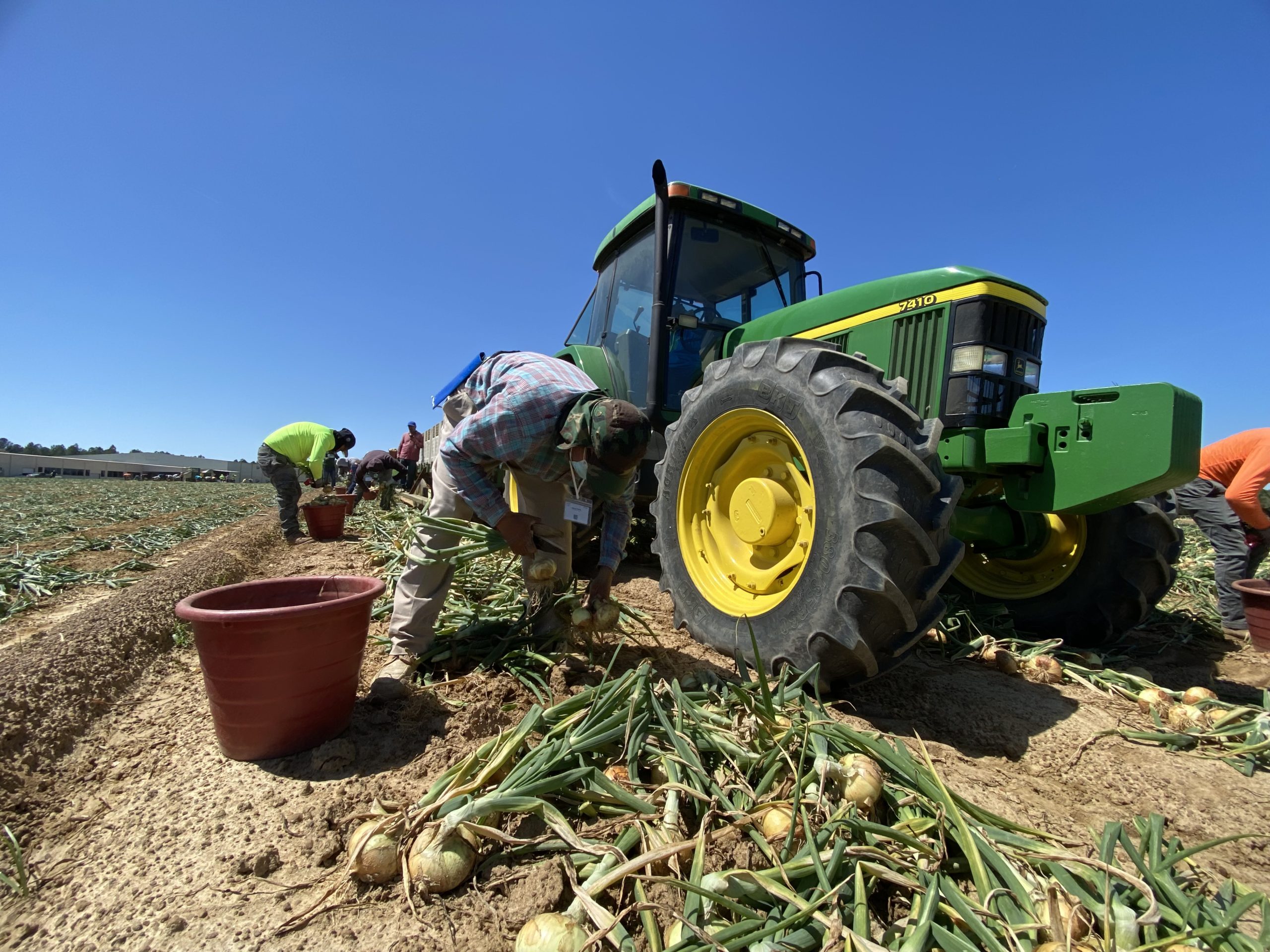
The chemicals organic onion growers can spray are highly ineffective, he said. “We are at Mother Nature’s mercy,” said Rusty. During high-disease pressure years, a grower can get into a lot of trouble, said Rusty. “Organics take up so much of our time and packing time.”
For weed control, manual pulling is required. Plus, organic growers can only plant in a field every other year, which leaves irrigation systems idle for a season. “As a lot of weed pressure comes on as the temperature warms up, we want something that comes off a lot earlier so we can get them out before the disease pressure increases,” he said.
Their 15-plus years of growing organic onions have taught them some things, including planting more disease-resistant varieties.
“It’s a huge challenge on the organic side,” said Rusty. “We’re still trying to figure it out. We will let you know if we ever become successful at it,” he joked. “It’s (organics) definitely the most inconsistent production that you can count on.”
Still, the McLains remain optimistic about organics’ future. “Organic demand overall increases slightly every year,” said Rusty. “We have really good demand for our product.”
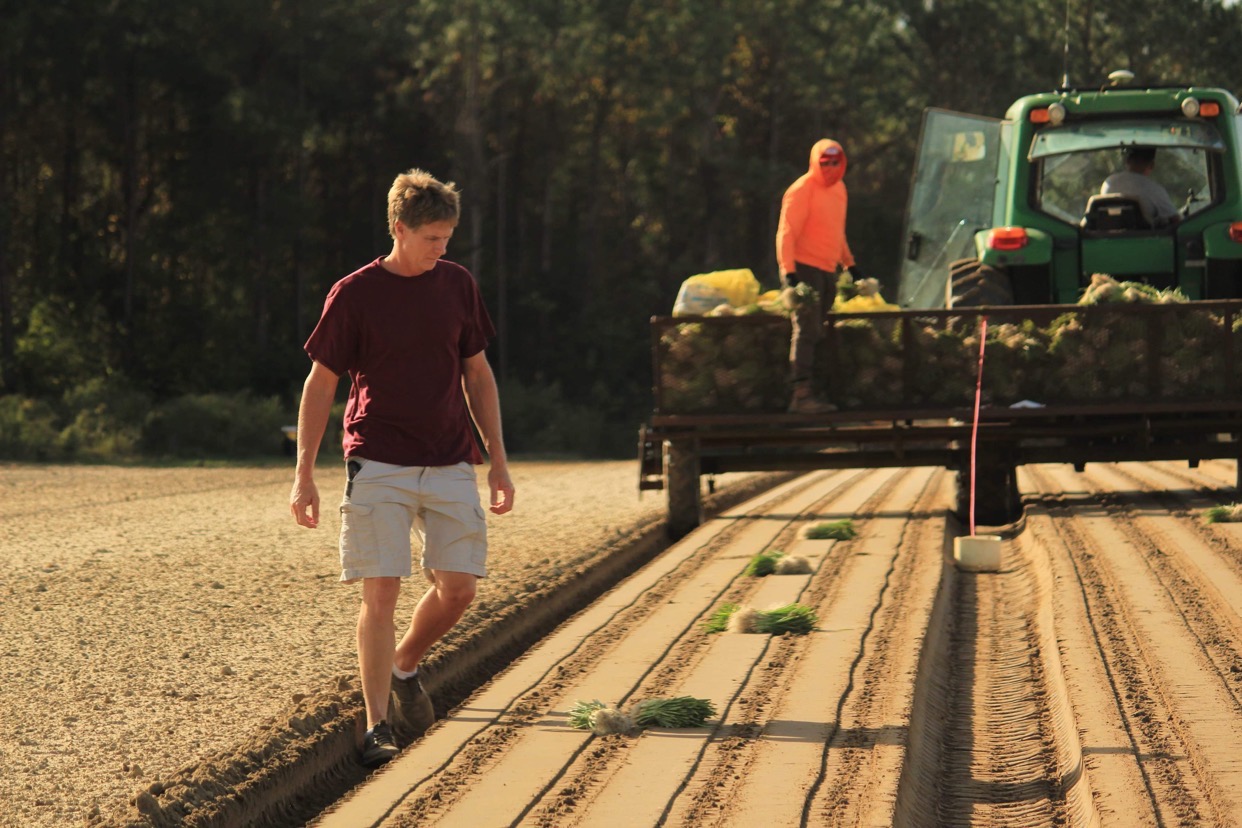
Farming heritage
The brothers grew up farming alongside their father, James. When he was 10, Brett McLain started working on the family’s tobacco farm, as did his younger brother later. Their grandparents also grew cotton, row crops and raised livestock. Spring breaks, summers and other times away from school found the brothers working the farm. In 1991, while in his early 20s, Brett joined full-time, and then Rusty started full-time in 1992, packing onions.
In 1986, the McLains planted their first crop of Vidalias and through 1994, when it constructed its first controlled atmosphere cooler, focused on onions and tobacco. Because of stress of producing both crops, the sons asked their dad to choose one. From then on, it was all onions.
In 2010, the brothers took over the family business with James, (who died at 77 years of age in 2018), becoming a consultant.
The McLains are training their offspring – Brett’s son and daughter and Rusty’s son – who are considering agricultural careers. Jessica, Rusty’s wife, handles human resources and compliance, while Kim, Brett’s wife, manages farm accounting and payroll.
Family involvement is vital. “We couldn’t do this alone,” said Brett. “It’s too big with too much going on with way too much to do. Family is the most important thing to us anyway. All this could go away tomorrow, but our families would stay together.”
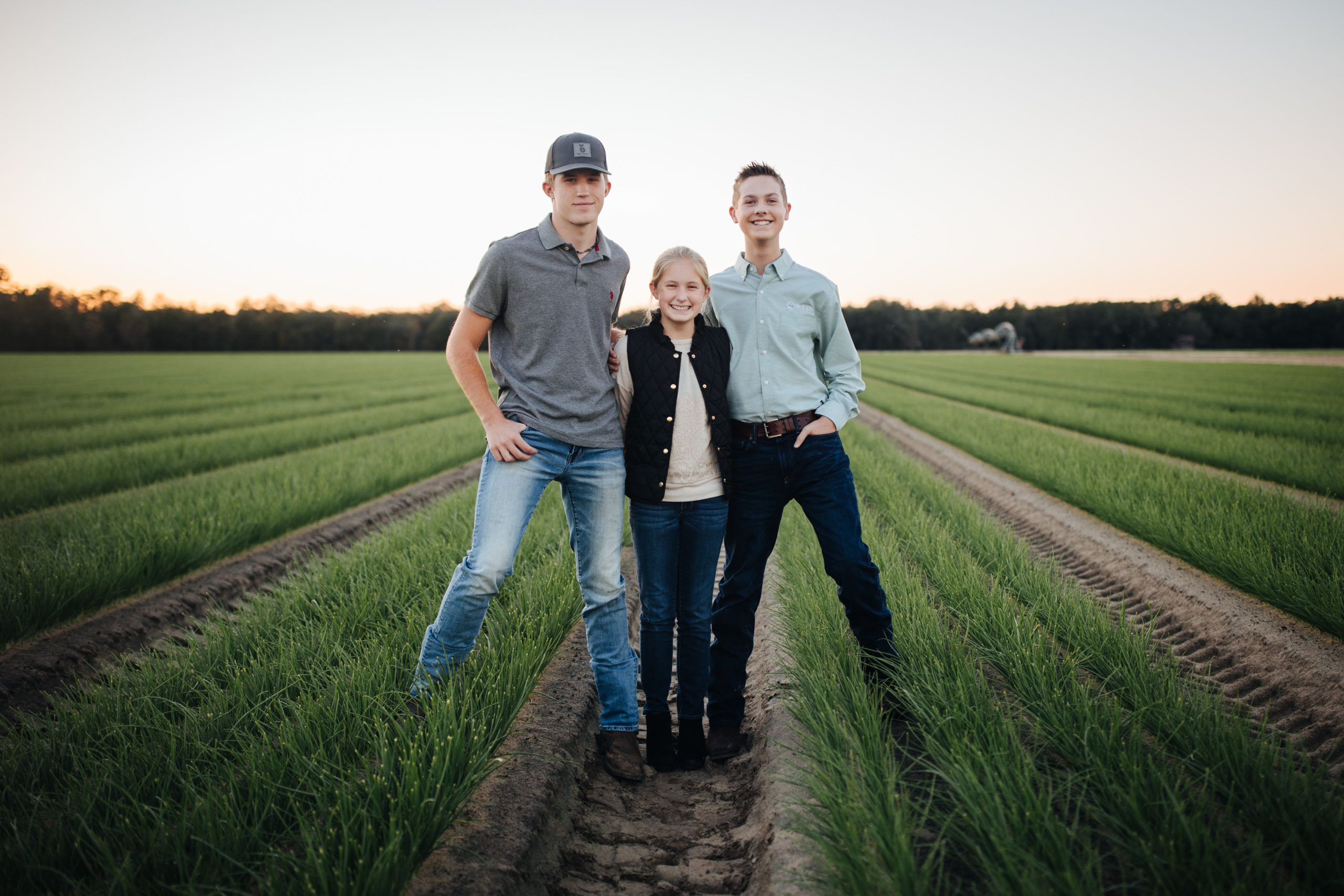
“This farming takes a lot of dedication and sacrifice,” said Brett. “We have friends who are always going places and doing things. For us, it’s basically a long period of time where we didn’t have a life. We dedicated our lives to this farm. We worked ridiculous amounts of hours, which is what it took to get this whole thing rolling and growing to the point where it has been. You have to maintain that dedication to feed the monster, so to speak.”
That dedication requires meticulous attention to detail. “Many do a lot of appointing and have all these farm managers, which we don’t have and don’t want,” said Brett, who does a lot of his own tractor driving with Rusty running the packing shed. “We would rather be hands-on. It’s really neat being in a field working on a tractor and looking over and seeing your son right beside you on another tractor. It’s one of the coolest things I’ve ever seen.”






